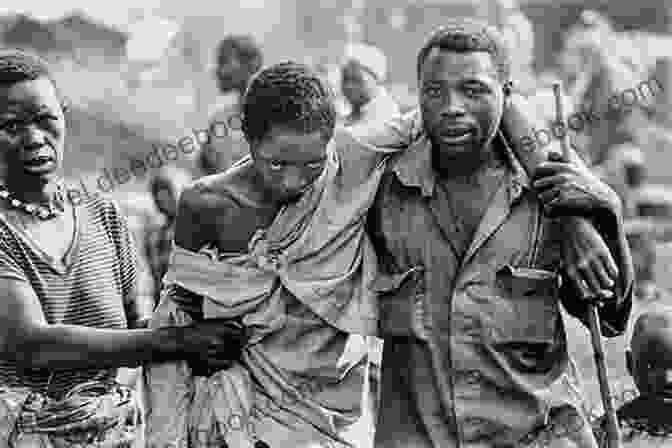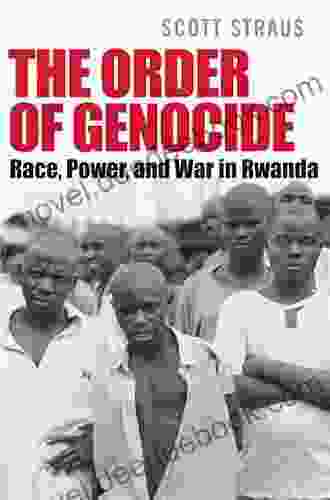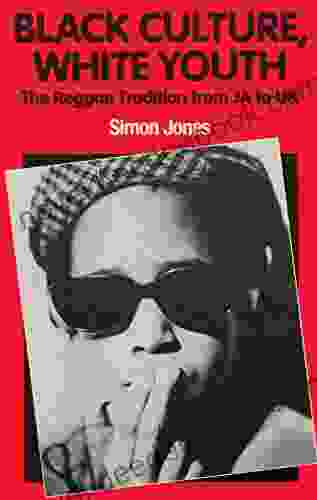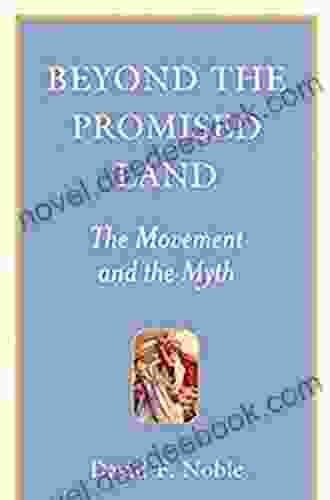Race, Power, and War in Rwanda: A Deep Dive into the Factors that Led to the Genocide

The Rwandan genocide of 1994 remains one of the darkest chapters in human history, a chilling reminder of the devastating consequences when race, power, and war collide. Over 800,000 people, primarily ethnic Tutsis, were systematically murdered in a matter of months, leaving an indelible scar on the nation and the world.
4.6 out of 5
| Language | : | English |
| File size | : | 3487 KB |
| Text-to-Speech | : | Enabled |
| Enhanced typesetting | : | Enabled |
| Word Wise | : | Enabled |
| Print length | : | 296 pages |
| Screen Reader | : | Supported |
To fully comprehend the Rwandan genocide, it is crucial to delve into the complex interplay of factors that created the conditions for such a horrific event. This article aims to provide an in-depth exploration of the historical, political, and social dynamics that shaped Rwandan society and ultimately contributed to the tragedy.
Historical Roots of Ethnic Division
The seeds of ethnic division in Rwanda were sown during the colonial era. German and Belgian colonizers exploited existing ethnic differences between the Tutsi and Hutu populations, favoring the Tutsi minority to maintain their control. This created a system of privilege and discrimination that sowed the seeds of resentment and mistrust.
After Rwanda gained independence in 1962, the Hutu majority gained political power, leading to decades of discrimination and marginalization of the Tutsi population. This discrimination extended to all aspects of life, from education to employment and political representation.
Political Manipulation and the Rise of Extremism
The political climate in Rwanda became increasingly volatile in the 1990s. President Juvenal Habyarimana's regime used ethnic division as a tool to maintain power, fostering a culture of fear and suspicion among the Hutu population.
Extremist Hutu groups, such as the Interahamwe and the Impuzamugambi, emerged and gained influence, spreading propaganda that demonized the Tutsi population and called for their extermination. These groups played a central role in organizing and carrying out the genocide.
Economic Inequality and Resource Competition
Underlying the ethnic tensions in Rwanda was a significant disparity in economic resources. The Tutsi minority controlled a disproportionate share of wealth and education, which further fueled resentment among the Hutu population.
Competition over land and other resources also contributed to the conflict. The Tutsi population was historically concentrated in the fertile northern region of Rwanda, while the Hutu majority occupied the less fertile southern region. This unequal distribution of resources exacerbated tensions and created a breeding ground for conflict.
International Failure and Lack of Intervention
The international community bears a significant responsibility for its failure to prevent the Rwandan genocide. Despite warnings of impending violence, the United Nations and other international organizations did not take decisive action to intervene.
The withdrawal of UN peacekeepers and the decision by world leaders to prioritize other conflicts allowed the genocide to unfold unchecked. This lack of international intervention contributed to the scale and severity of the tragedy.
Lessons Learned and Preventing Future Genocides
The Rwandan genocide serves as a stark reminder of the devastating consequences of unchecked hatred and division. It underscores the importance of understanding the complex interplay of factors that can lead to such atrocities.
Preventing future genocides requires a multifaceted approach that addresses historical injustices, promotes social cohesion, and fosters economic equality. International cooperation and a commitment to human rights are also essential.
Education and awareness-raising about the dangers of racism and discrimination are crucial. By fostering empathy and understanding, we can create societies where diversity is celebrated and conflict is resolved peacefully.
The Rwandan genocide remains a haunting reminder of the fragility of human civilization and the importance of vigilance against the forces that can lead to its destruction. By understanding the factors that contributed to this tragedy, we can take steps to prevent similar atrocities from happening again.

4.6 out of 5
| Language | : | English |
| File size | : | 3487 KB |
| Text-to-Speech | : | Enabled |
| Enhanced typesetting | : | Enabled |
| Word Wise | : | Enabled |
| Print length | : | 296 pages |
| Screen Reader | : | Supported |
Do you want to contribute by writing guest posts on this blog?
Please contact us and send us a resume of previous articles that you have written.
 Book
Book Novel
Novel Page
Page Chapter
Chapter Genre
Genre Paperback
Paperback E-book
E-book Newspaper
Newspaper Sentence
Sentence Bookmark
Bookmark Glossary
Glossary Bibliography
Bibliography Preface
Preface Synopsis
Synopsis Annotation
Annotation Scroll
Scroll Codex
Codex Classics
Classics Library card
Library card Narrative
Narrative Autobiography
Autobiography Memoir
Memoir Encyclopedia
Encyclopedia Resolution
Resolution Catalog
Catalog Card Catalog
Card Catalog Borrowing
Borrowing Archives
Archives Periodicals
Periodicals Study
Study Research
Research Academic
Academic Rare Books
Rare Books Interlibrary
Interlibrary Literacy
Literacy Study Group
Study Group Dissertation
Dissertation Storytelling
Storytelling Awards
Awards Reading List
Reading List William C Lewis
William C Lewis David Yarwood
David Yarwood Lynn Nottage
Lynn Nottage Susan Kinsey
Susan Kinsey Carla Golian
Carla Golian Horatio Alger
Horatio Alger Francesco Amodeo
Francesco Amodeo Leslie Sorrell
Leslie Sorrell Laurence J Yadon
Laurence J Yadon Joseph Shiery
Joseph Shiery Niki Behrikis Shanahan
Niki Behrikis Shanahan Lisa Yount
Lisa Yount Klaus H Carl
Klaus H Carl Nolon Stacey
Nolon Stacey De Branna Anne Thomas
De Branna Anne Thomas Jim Bremner
Jim Bremner James Smalls
James Smalls Grazia Deledda
Grazia Deledda M A Demle
M A Demle Chana Porter
Chana Porter
Light bulbAdvertise smarter! Our strategic ad space ensures maximum exposure. Reserve your spot today!

 Chuck MitchellUncover the Secrets of London Underground: A Journey Beneath the City Streets
Chuck MitchellUncover the Secrets of London Underground: A Journey Beneath the City Streets Isaac AsimovFollow ·19.6k
Isaac AsimovFollow ·19.6k Dakota PowellFollow ·12.7k
Dakota PowellFollow ·12.7k Charles ReedFollow ·10.2k
Charles ReedFollow ·10.2k Tyler NelsonFollow ·14.7k
Tyler NelsonFollow ·14.7k Jayson PowellFollow ·11.1k
Jayson PowellFollow ·11.1k Junichiro TanizakiFollow ·8k
Junichiro TanizakiFollow ·8k Orson Scott CardFollow ·13.1k
Orson Scott CardFollow ·13.1k Nathan ReedFollow ·13.9k
Nathan ReedFollow ·13.9k

 Bryce Foster
Bryce FosterPerforming Asian American Women On Screen And Scene
The representation of Asian American women...

 Frank Mitchell
Frank MitchellGirl Can Draw: A Spirited and Inspiring Play by Joe...
Prologue In the realm of...

 Marc Foster
Marc FosterThe Epic Story of Race and the American Media: A Journey...
From the Shadows of Slavery to the Dawn of...

 Demetrius Carter
Demetrius CarterThe Ultimate Guide to Hiking West Virginia: Discover the...
West Virginia, often referred to as...

 Isaiah Price
Isaiah PriceThe Ten Step Guide on How to Become Famous: Unleash Your...
In the captivating world of entertainment...
4.6 out of 5
| Language | : | English |
| File size | : | 3487 KB |
| Text-to-Speech | : | Enabled |
| Enhanced typesetting | : | Enabled |
| Word Wise | : | Enabled |
| Print length | : | 296 pages |
| Screen Reader | : | Supported |










